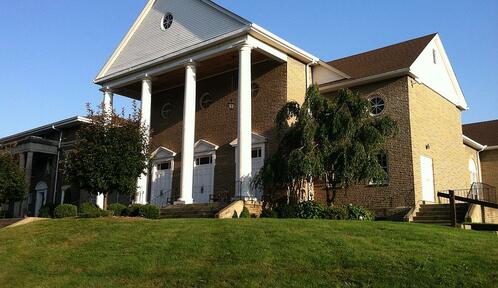10/27/19 A.M.

Holiday Challenges - Trick or Treat
Many believe the festival of Samhain to have been the beginning of the Celtic year. At Samhain, farmers brought livestock in from summer pastures and people gathered to build shelters for winter. The festival also had religious significance, and people burned fruits, vegetables, grain, and possibly animals as offerings to the gods. In ancient Celtic stories, Samhain was a magical time of transition when important battles were fought and fairies cast spells. It was a time when the barriers between the natural world and the supernatural were broken. The Celts believed that the dead could walk among the living at this time. During Samhain, the living could visit with the dead, who they believed held secrets of the future. Scholars believe that Halloween’s association with ghosts, food, and fortunetelling began with these pagan customs more than 2,000 years ago.
What Is All Saints Day?
All Saints’ Day in observed on November 1 by the West (Roman Catholic Church, for instance). In Eastern rite churches, it is observed on the first Sunday after Pentecost. Its purpose is to commemorate the lives of all saints and, based on the belief of the communion of the living and the dead, to ask for their intercession before God.
All Saints’ Day is also called Allhallows. Halloween is celebrated the day before, or, specifically, the evening before All Saints’ Day. The word Halloween is a derivative of Hallows Eve. The emphasis on spirits, goblins, witches, and other dark images came about from the supposition that the dark forces were especially active just before All Saints’ Day in order to hinder the prayer for the dead that would be offered the next day. The practice of trick or treating dates back to the Middle Ages when poor people would go door to door begging food in exchange for their prayers for the dead.
While the Bible teaches that the dead in Christ are alive, it nowhere teaches us to ask for their intercession. Rather, it urges Christians to come boldly before the throne of grace (to God) knowing that we have a great High Priest, Jesus Christ, who ever lives to make intercession for us (Hebrews 4:14–16, 7:24–25). We are to depend upon Christ alone for salvation (Acts 4:12) and upon Him alone for grace for Christian living after salvation. The Bible speaks of Christ as being our one mediator between God and man (1 Timothy 2:5).
Challenge #1 Christian Liberty (Sacrifice)
Challenge #2 Watch out for false teaching (sacrifice to the Lord).
Challenge #3 Do not turn to Mediums
Challenge #4 Hold firmly to the faith
Conclusion: Live a life worthy of the Gospel
Wikipedia
Festivals
But the fact of harvest in each case gives the festival a communal, celebratory and sacrificial character. The greater and richer the harvest, the more intense and cooperative the work of any agricultural commune in Israel must be.
One way to enjoy the crop is to share some of it (indeed, a great deal of it) at the time of harvest itself. That celebration leads naturally to sacrifice, a moment when Israel gathers with Israel’s God to consume with pleasure and generosity what God permits to be produced on God’s land.
Unleavened Bread. Passover in ancient Israel was the prelude to the Feast of Unleavened Bread.
The waving of the sheaf before the Lord at the close of Passover anticipated the greater harvest, especially of wheat (see Ex 34:22), which was to follow in the summer, and that is just what Weeks celebrates (Lev 23:10–15).
Sukkoth
1.4. Sukkoth. The last great harvest, and the last of the three great festivals, is Sukkoth, meaning “Booths,” or “Tabernacles.” The term sukkah can also mean “thicket,” such as an animal might lurk in; the point is to refer to a rough, natural shelter of plaited branches that would permit the celebrants to lodge in the fields. Grapes and olives were taken in at this time; they require particular care in handling and storage, and sometimes it is prudent to protect the ripened yield. Camping in the fields was a wise practice.
Sacrifice and Blessing
The underlying dynamic of sacrifice is that when Israel enjoys the produce of God’s land with God, according to the preparation and timing and consumption that God desires, Israel is blessed.